Peaches are some of the sweetest fruits and you aren’t wrong for buying so many.
When you buy a lot of peaches, however, you have to eat them quickly so that they don’t go bad.
Is there a way to store your peaches so that they can last longer? How long do peaches last? Read this article to find out.
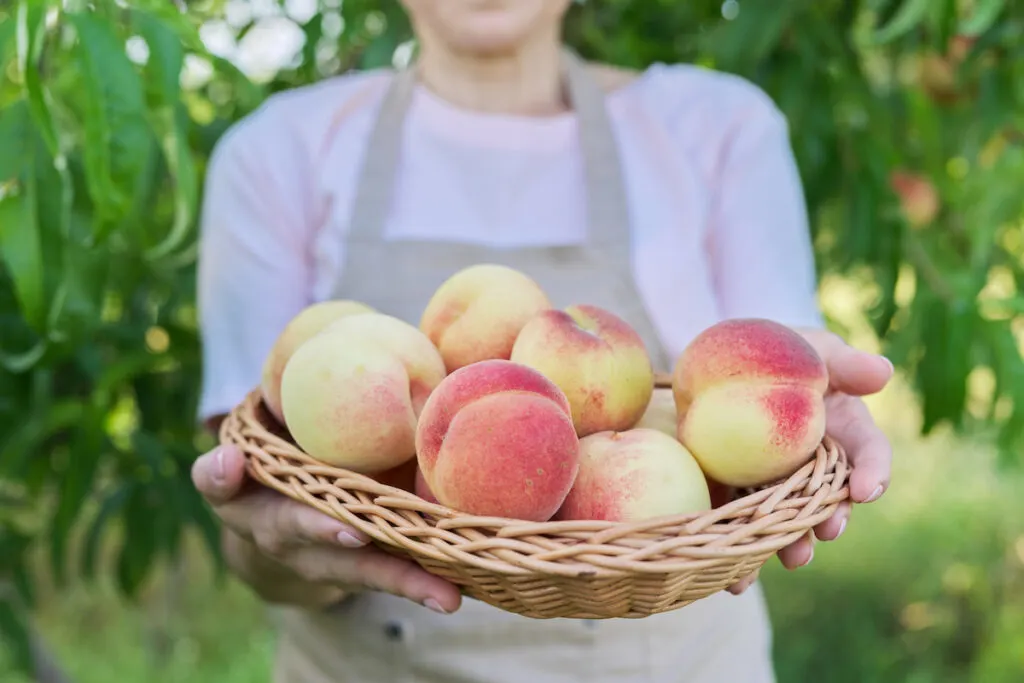
Table of Contents
How Long Do Peaches Last?
Depending on the way you store your peaches, they can last for as long as three days to twelve months. If you store unripe peaches, they can last even longer.
However, storing unripe peaches is not recommended, as they will have a different consistency and taste when they are finally ready to eat.
Before storing any peach, ensure that it is ripe to your liking first.
The storage technique you choose to use for your peaches also affects their general appearance and taste. For example, you can store peaches so they become crispy and sweeter than normal.
The best storage techniques for peaches depend on factors such as temperature and humidity.
Decreasing the temperature can help your fruits last longer while increasing the humidity can make them spoil quickly.
How to Store Peaches So They Can Last Longer
You can store the fruits whole or sliced, with or without their skin, washed or unwashed, or any way you want to consume them.
Remember that the method you choose determines how long the fruits will last, so choose wisely.
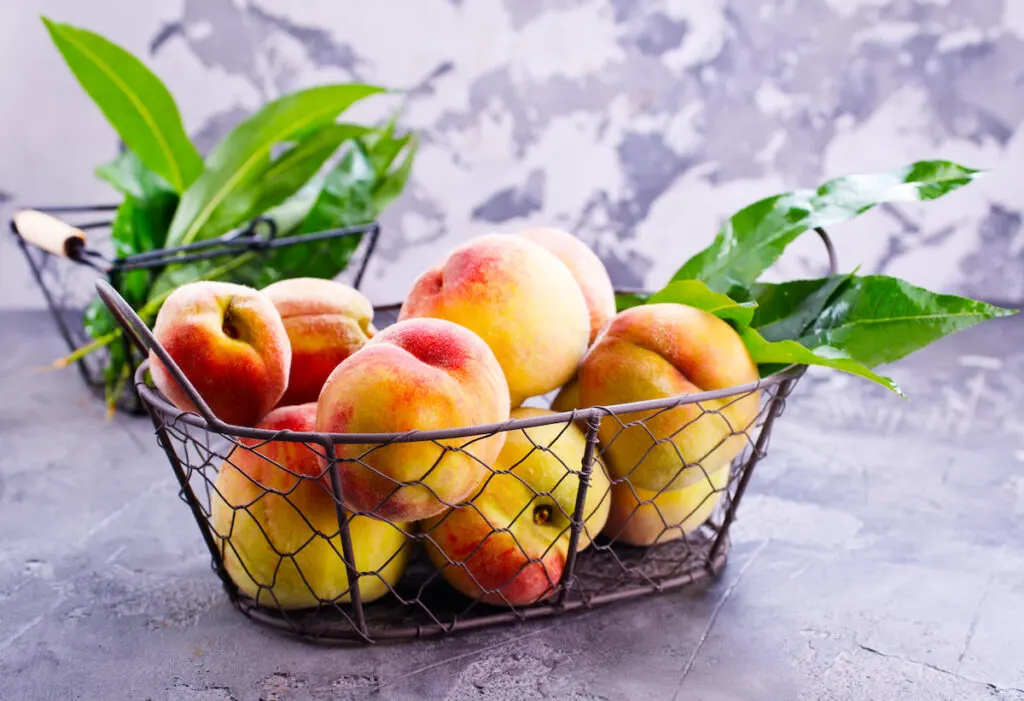
1. Ripen Unripe Peaches
It is good practice to make unripe peaches ripe before you store them. Ripen your peaches with any of these methods:
- Place them on a countertop: Simply keeping peaches on a countertop or a place with good light exposure can make them ripe in two to three days. Keep their shoulders facing down.
- Place them in a paper bag: Your unripe peaches will ripen in one to three days when you keep them in a paper bag. The extra humidity and temperature stability in the bag encourage them to ripen quickly.
- Place them near bananas and apples: Do you have bananas or apples? Keep them sealed in a bag with your unripe peaches. The peaches will ripen in one to two days.
Unripe peaches have a firmer feel and muted fragrance.
That lovely peach scent is only found in ripe ones.
2. Refrigerate the Peaches
Now that you have ripe peaches, it is time to store them. You can store your fruits for as long as three to five days in a fridge when you follow these steps:
- Rinse the fruits with running water: Use clean and running water to remove dust and dirt from the skin of the fruits.
- Dry the peaches: Using a paper or hand towel, pat the peaches so that they are completely dry before you store them in the fridge.
- Place whole peaches in the fridge: Don’t cut or slice the peaches, keep them exactly the way they are. Keep them in a fruit box or drawer in the fridge.
- Coat sliced peaches with lemon juice before storing them: If your peaches are already sliced, first coat them with lemon juice before you put them in the fridge.
- Regularly check the fruits: Peaches in fridges will last for a few days before they go bad. Ensure that you eat them in a timely manner.
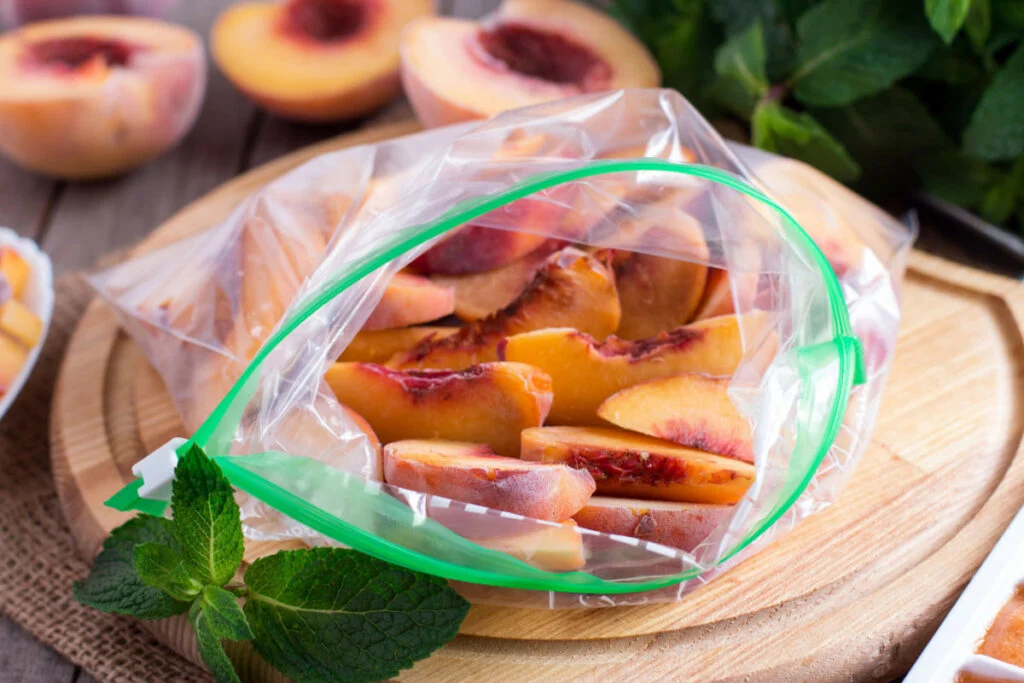
3. Seal Sliced Peaches
Aside from using a fridge, you can store your sliced peaches with another method. However, they will last for just one or two days, especially if you do not coat them with lemon juice.
Keep the sliced fruits in an airtight bag then seal them up properly by trying to remove as much air as you can from the bag. The tighter the bag, the longer your peaches will last.
So long as the sliced fruits are yet to have any brown spots on their flesh, they are still edible. Eat them quickly once brown spots appear.
4. Freeze the Peaches
You can keep your peaches for as long as six to twelve months when you freeze them. Freezing peaches is unlike refrigerating them, as they will only last longer when you slice or dice them.
Freeze your fruits with these steps:
- Rinse the fruits: Rinsing will help keep your peaches dust-free.
- Peel and slice the fruits: Use a peeler or knife to remove the skin of your peaches. You can eat the skin if you want.
- Freeze the peaches for a few hours: Fast-freeze them for four to twelve hours. When they feel firm and cold, move on to the next step.
- Keep the peaches in a sealed container: You can use a plastic container for fruits in a freezer. Keep all your diced and cold peaches in this container and properly seal it.
- Store your peaches for as long as you want: Your peaches will last for a long time so long as you do not open their container too often. The temperature is just perfect for them, so only open the container when you are going to use the fruit.
Close the freezer and peach container quickly to help your fruit last longer.
5. Dry the Peaches
Do you love crispy fruit? Here’s a storage technique to help your peaches last for a very long time. To dry peaches, follow these steps:
- Rinse and dry the peaches: This is the last time you will expose the fruits to moisture, so rinse them well.
- Slice them: Slice them into very thin pieces. The thinner, the better.
- Dry them in a dehydrator: Keep your sliced fruits in a dehydrator at 145°F for twelve hours. Remove them when they are crispy.
- Store them in a sealed bag: The less air in the bag, the better for the peaches. The worst enemy of dried fruits is high humidity, so keep them in a dry room.
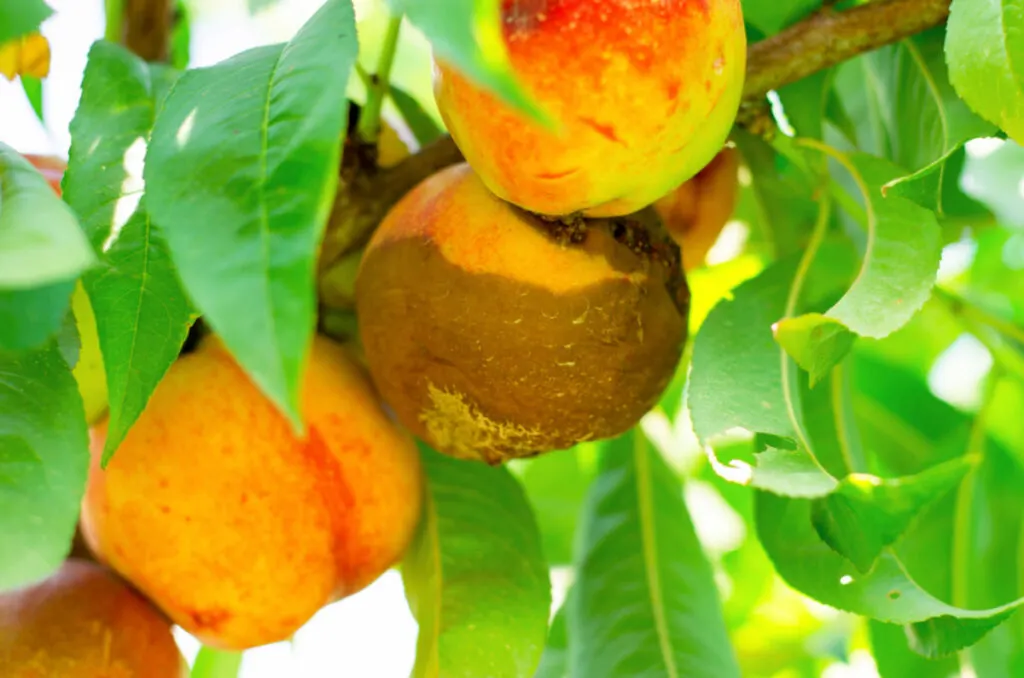
How to Know When to Dispose of Your Peaches?
After storing your peaches for a long period, especially in the freezer, don’t just eat them. Check a few of them and ensure that they are still safe for consumption.
Here are some things to check for:
1. Presence of Mold
Can you see a moldy patch anywhere on the surface of your peaches? It means that the fruits have gone bad, and it is time to throw them away.
Moldy fruits are already decomposing and are no longer safe to eat.
There are already a lot of fungi on the flesh of your peaches, and these microbes are ready to spread to other peaches, hence the presence of mold.
2. Presence of Insects and Worms
The presence of worms (insect larvae) and insects on your peaches is not good news. It means that you have left your peaches exposed to natural elements for too long.
Infested fruits are not safe for consumption, so dispose of them. If there are other fruits around, check them and ensure that they are free from pests before you eat them.
3. Brown Flesh
If you already have sliced peaches, check their flesh. Peach flesh is brightly colored. If you see brown spots, that part of the peach is becoming unsafe for eating.
Eat the peaches with brown spots as soon as possible, as these spots can be caused by oxidation or bruises. However, when the whole flesh turns brown, dispose of the fruit.
4. Foul Smell
When you open your bag or container of peaches, it should have a lovely scent. Any smell that isn’t welcoming is a sign that your fruits are bad.
Ripe peaches have a lovely scent while unripe ones have a more-hidden scent. Only bad peaches have a foul smell, so dispose of them right away.
5. Bitter Taste
If you eat your peaches and you do not like their taste, dispose of them, as they are unpleasant. It does not matter if they are spoiled or not, you do not like them, so don’t eat them.
Remember that aside from spoiled peaches, the unripe ones can have an unpleasant taste.
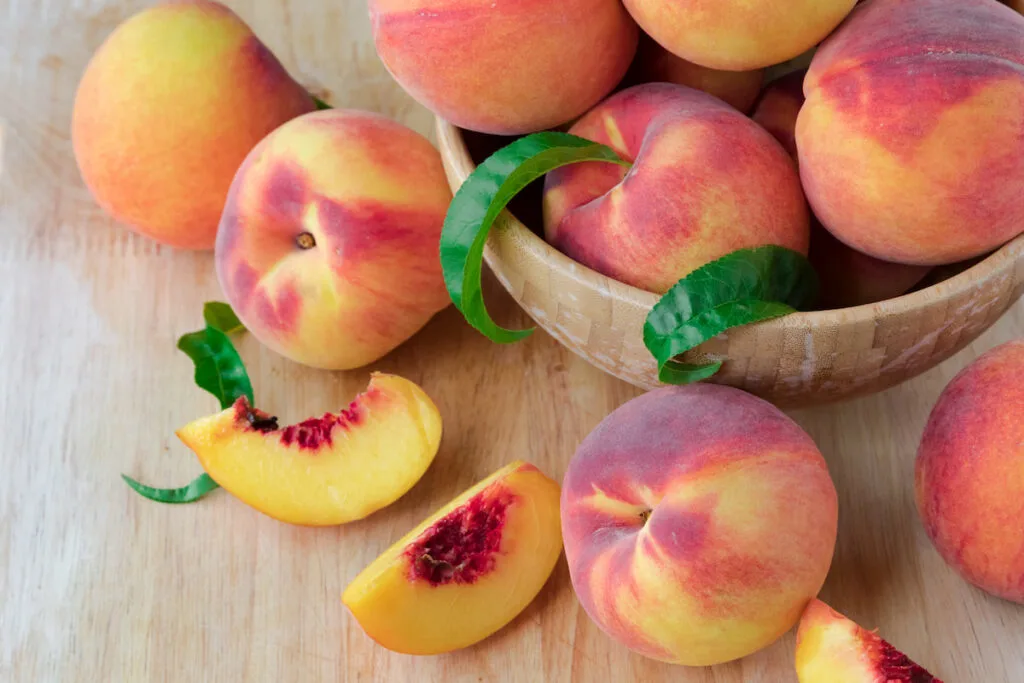
Final Thoughts
Now, you can easily tell which peach is ripe and how to store it. Remember that storing unripe peaches in a fridge or freezer is wasteful, as they will have a slightly different taste and consistency.
When storing your fruits in a freezer or fridge or by dehydrating them, remember to rinse them with running water. As long as you stick to the tips in this article, your peaches will last a long time.
